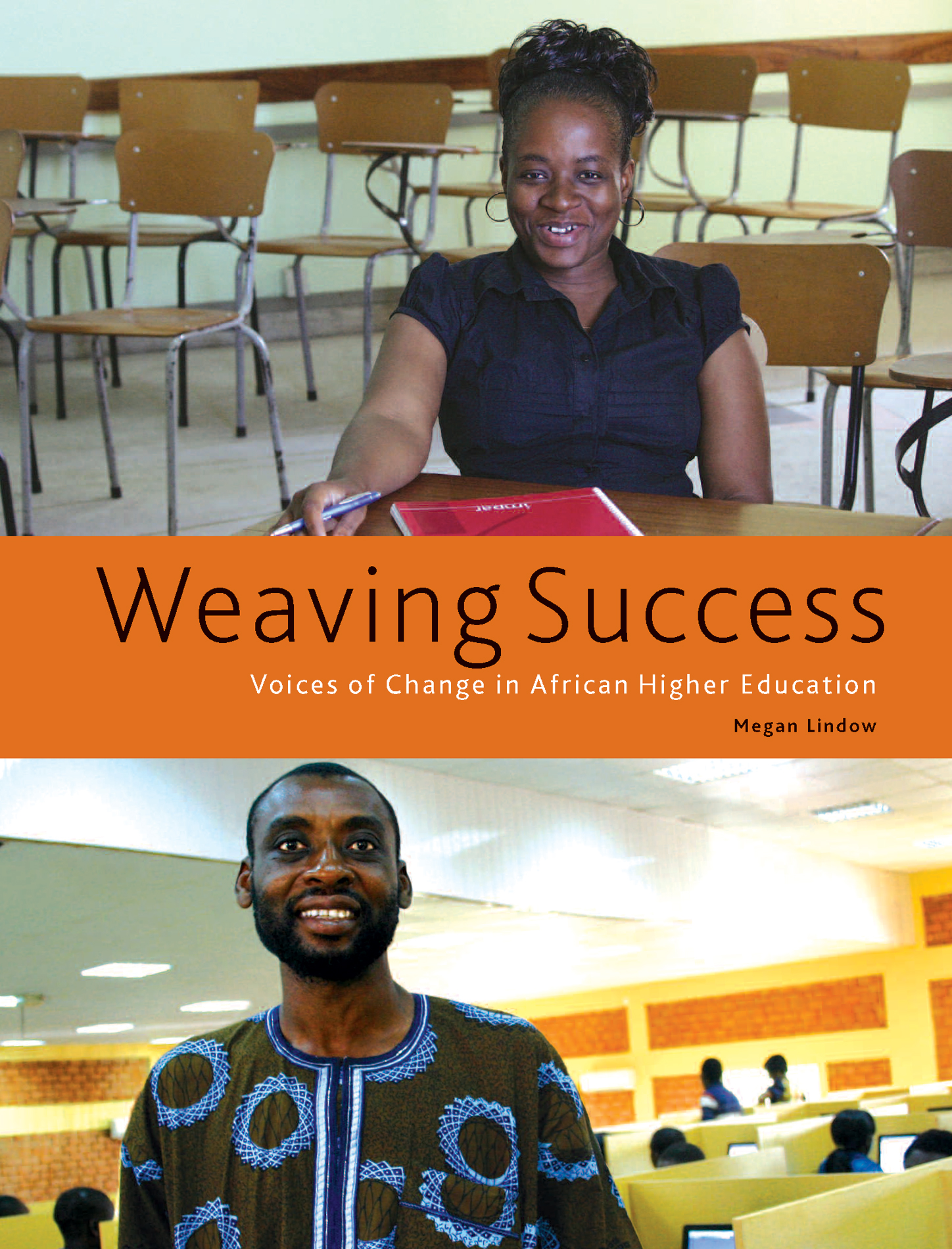
| IIE Home | Membership | Publications | Open Doors | Contact Us |
| Connect with Us |
Archives |
New Book: Weaving Success: Voices of Change in African Higher Education
In order to ensure that the book reaches a large audience, Weaving Success is available on a variety of electronic platforms, including a PDF file, a free Flipbook that is compatible on personal computers and Blackberries, a free app for all Apple devices, and an Amazon Kindle version. To access this publication, go to: www.iie.org/weavingsuccess About Weaving Success and the Partnership for Higher Education in Africa The Partnership for Higher Education in Africa was an unprecedented collaboration between seven major U.S. foundations to support African higher education institutions in building capacity and training the next generation of scholars, public servants and entrepreneurs. The ten-year, $440 million initiative was directly and indirectly responsible for improving conditions for over four million students at 379 African colleges and universities. The initiative spanned a decade, from 2000-2010, and served nine African countries: Egypt, Ghana, Kenya, Madagascar, Mozambique, Nigeria, South Africa, Tanzania, and Uganda. The PHEA foundations included: Carnegie Corporation of New York, the Ford Foundation, the John D. and Catherine T. MacArthur Foundation, the Rockefeller Foundation, the William and Flora Hewlett Foundation, the Andrew W. Mellon Foundation, and The Kresge Foundation. Weaving Success details how PHEA’s support helped to catalyze social and economic development in African higher education. It looks at how African universities have incorporated new technologies to address their pedagogical challenges, and considers how a newfound focus on gender among institutional leaders has helped widen access to higher education for women and sparked cultural change on campuses. In addition, the book examines the exceptional steps that African universities have made over the past decade to produce high-level research, and apply their innovations in ways that benefit their respective societies. The author of Weaving Success, Megan Lindow, spent over a year traveling to each of the nine countries that received PHEA support and speaking with people whose lives were impacted by this initiative. Lindow expertly weaves together these diverse voices to tell a holistic story of systemic change across campuses and national boundaries. Vivid textboxes complement Lindow’s narrative and share personal triumphs from the perspective of individual stakeholders: a professor of chemistry in Ghana who utilized new technologies to upgrade his institution’s facilities; a budding lawyer who broke free of her society’s traditional gender roles and became the first in her family to earn a bachelor’s degree. In his Foreword to the book, Njabulo S. Ndebele, Vice Chancellor Emeritus of the University of Cape Town, writes: "[Weaving Success] tells a story of innovation based on the persistent efforts of a new generation of researchers in African universities. They are resourceful, focused in their persistence, and seek continuous improvement from their initial successes. Leaders of higher education in Africa will be fascinated by homegrown stories of success in conditions of change that can lead only to more success." For more information and to download the book, please visit: www.iie.org/weavingsuccess |
| www.iie.org/iienetwork • Member website of the Institute of International Education © 2025 Institute of International Education. All rights reserved. |
 A new book published by the Institute of International Education (IIE) recounts the impact of the Partnership for Higher Education in Africa (PHEA). The publication, Weaving Success: Voices of Change in African Higher Education, provides a detailed look at key issues in African higher education and highlights the transformative processes that are shaping the future of African colleges and universities. It includes stunning four-color photographs throughout, along with inspiring tales of success by African professors, university administrators, and students.
A new book published by the Institute of International Education (IIE) recounts the impact of the Partnership for Higher Education in Africa (PHEA). The publication, Weaving Success: Voices of Change in African Higher Education, provides a detailed look at key issues in African higher education and highlights the transformative processes that are shaping the future of African colleges and universities. It includes stunning four-color photographs throughout, along with inspiring tales of success by African professors, university administrators, and students. 

